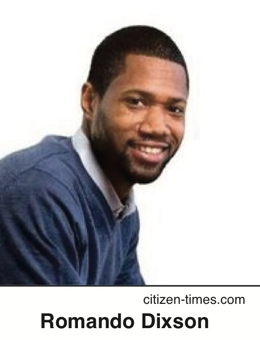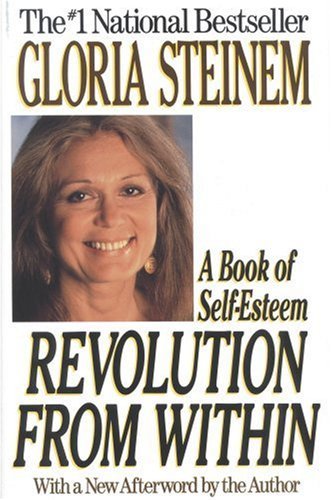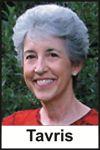Rascals case in brief
In the beginning, in 1989, more than 90 children at the Little Rascals Day Care Center in Edenton, North Carolina, accused a total of 20 adults with 429 instances of sexual abuse over a three-year period. It may have all begun with one parent’s complaint about punishment given her child.
Among the alleged perpetrators: the sheriff and mayor. But prosecutors would charge only Robin Byrum, Darlene Harris, Elizabeth “Betsy” Kelly, Robert “Bob” Kelly, Willard Scott Privott, Shelley Stone and Dawn Wilson – the Edenton 7.
Along with sodomy and beatings, allegations included a baby killed with a handgun, a child being hung upside down from a tree and being set on fire and countless other fantastic incidents involving spaceships, hot air balloons, pirate ships and trained sharks.
By the time prosecutors dropped the last charges in 1997, Little Rascals had become North Carolina’s longest and most costly criminal trial. Prosecutors kept defendants jailed in hopes at least one would turn against their supposed co-conspirators. Remarkably, none did. Another shameful record: Five defendants had to wait longer to face their accusers in court than anyone else in North Carolina history.
Between 1991 and 1997, Ofra Bikel produced three extraordinary episodes on the Little Rascals case for the PBS series “Frontline.” Although “Innocence Lost” did not deter prosecutors, it exposed their tactics and fostered nationwide skepticism and dismay.
With each passing year, the absurdity of the Little Rascals charges has become more obvious. But no admission of error has ever come from prosecutors, police, interviewers or parents. This site is devoted to the issues raised by this case.
On Facebook
Click for earlier Facebook posts archived on this site
Click to go to
Today’s random selection from the Little Rascals Day Care archives….
Click for earlier Facebook posts archived on this site
Click to go to
Today’s random selection from the Little Rascals Day Care archives….
Junior Chandler’s homefolks updated on his case
 Sept. 29, 2014
Sept. 29, 2014
“Duke law professor Theresa Newman has three boxes full of files about Andrew Chandler Jr.’s case: details about the bizarre allegations, the expert testimony that would not be admissible today and the multiple appeals….”
– From “Duke law clinic to review 1987 conviction” in the Asheville Citizen-Times (Sept. 27)
Thanks to reporter Romando Dixson for providing a thorough recap of the Chandler case, pegged to the recently expressed interest of the Duke Law School Wrongful Convictions Clinic.
Publication in the Asheville paper is especially welcome for Junior’s friends, family and other supporters in nearby Madison County, who likely haven’t seen the case mentioned in print since his conviction in 1987.
Nifong had sympathizer in H.P. Williams
Dec. 30, 2011
“As the May 2 (2006) Democratic primary nears, (Duke lacrosse prosecutor Mike) Nifong has gotten an earful from his two opponents….
“ ‘I feel for him; no matter what he does, he can’t win,’ said Elizabeth City lawyer H.P. Williams, a former district attorney for 16 years who in the early 1990s prosecuted the high-profile sexual abuse case against the owner of the Little Rascals Day Care…
“ ‘I felt as a prosecutor that anything I didn’t say, I didn’t have to take back. So it all goes back to my No. 1 philosophy: “You have the right to remain silent.” ’ ”
– H.P. Williams, sharing with Mike Nifong his “No. 1 philosophy”
(The Charlotte Observer, April 17, 2006)
Whatever the shortcomings of the Little Rascals prosecutors, excessive openness wasn’t among them. In fact, their entire case depended on withholding any verbatim record of how therapists extracted accusations from the supposed child-victims.
Williams most recently called on his right to remain silent when I asked whether he might have changed his mind about the defendants’ guilt.
Steinem made case for believing the unbelievable
 Sept. 1, 2015
Sept. 1, 2015
“(As witnesses) children are even less likely to be believed when their stories involve extremes of sadism, collusion among families and communities (sometimes extending over several generations) and so-called ritual or cult abuse – including the torture and killing of animals to frighten children into silence – that are so terrible that authorities decide these things just can’t be true.
“Yet many instances of such ‘incredible’ crimes are documented, sometimes by adults after years of suppressed memory, sometimes by authorities who are now beginning to believe children enough to investigate their stories…..”…
– From “Revolution From Within: A Book of Self-Esteem” by Gloria Steinem (1993)
Steinem’s semi-autobiography was a best-seller, both profiting from and contributing to the nation’s heightened concern with self-esteem.
In addition to using Ms. magazine to tout the existence of “ritual abuse,” she also helped finance the search for the imaginary McMartin tunnels.
McMartin: Patient Zero in day-care abuse contagion?
 March 26, 2012
March 26, 2012
How did the moral panic over day-care ritual abuse spread so widely? Did some undetected psychotropic waft from Manhattan Beach to Edenton to Christchurch, New Zealand?
I was reminded of that lingering question while reading the smart and lively “Mistakes Were Made (But Not by Me): Why We Justify Foolish Beliefs, Bad Decisions and Hurtful Acts” (2007).
Although Carol Tavris and Elliot Aronson address the day-care panic only briefly, their reference to the McMartin case having produced “copycat accusations against day care teachers across the country” caught my attention. Yes, the timing, pattern and similarity of these cases suggest conscious imitation, but I haven’t seen the evidence.
“We didn’t mean ‘copycat’ literally,” Tavris explains in an e-mail. “It’s just that the McMartin hysteria scared people, and got them worried about their own local day care centers, and motivated DAs and cops to advance their careers by finding these villains… and thereby launched a thousand other efforts to find molesters under the bed and in the day care classrooms…. That’s what a hysterical epidemic means.”
Coincidentally, I’ve been corresponding with Michael Hill, professor of sociology at Victoria University of Wellington, who has traced outbreaks in New Zealand and Australia directly to visits from such American Appleseeds as Roland Summit and Kee MacFarlane.











0 CommentsComment on Facebook